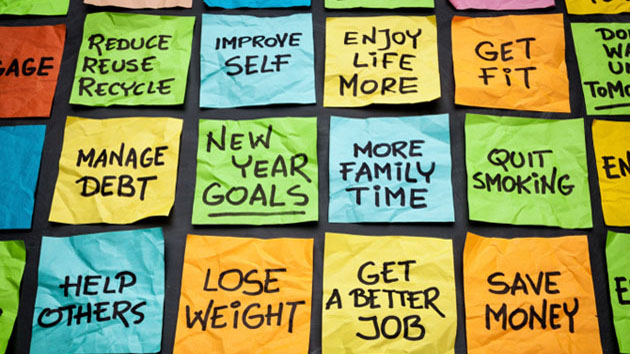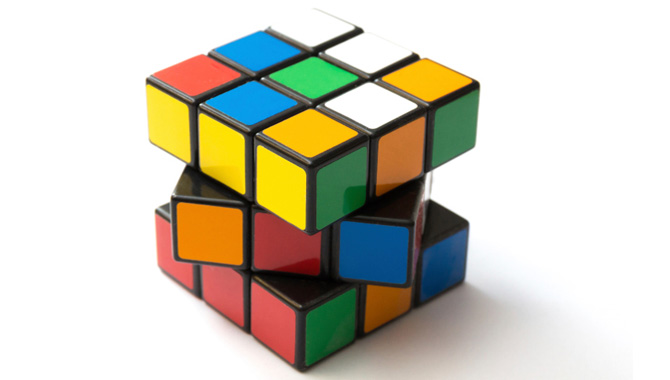
It’s 11 pm. You’ve had a long day. And now you have to make a choice: Do you go to sleep, or do you watch just one more episode of House of Cards?
You’ve heard all kinds of warnings—from your doctor, your mother, the media—about the downsides of getting too little sleep. But millions of Americans have work and school schedules, social lives, hobbies and/or kids that keep them awake. And sometimes it seems as though functioning on too few hours of sleep is even something to be proud of, a sacrifice that enables you to squeeze more living into your daily life. But science should make you rethink that particular humblebrag. As UC Berkeley sleep researcher Matt Walker explains on the Inquiring Minds podcast, not getting enough sleep has serious consequences.
“Sleep is a time of immense benefit for your body,” Walker tells interviewer Kishore Hari. “Every one of the basic homeostatic systems within your body take a huge hit [even after] just one night of short sleep.”
From the show, here are nine reasons why you really do need to go to sleep:
Yes, you need about eight hours of sleep. If you think you’re the exception, you’re almost certainly wrong. That’s because we are very good at convincing ourselves that this rule doesn’t apply to us. Getting too little sleep impairs your judgment. “Your subjective sense of how well you’re doing under conditions of sleep deprivation is a miserable predictor of objectively how you actually are doing,” explains Parker. In truth, any 24-hour period in which you get too little sleep will have measurable, biological consequences. There is some variability here, person to person. But when your sleep time dips below seven-to-eight hours, things start to go awry. “As soon as you get less than seven hours of sleep, it’s very easy for us to measure impairments in your brain function and in your body functions,” says Walker.
Your great-grandparents probably got at least nine hours of sleep. Estimates of how much sleep the average American gets these days vary wildly, but it’s clear that many people are sleeping far less than eight hours. This is a relatively new phenomenon. Even as recently as 100 years ago, people tended to spend more time sleeping. “That short-sleeping that we’re now suffering is a consequence of our lifestyle,” says Walker. “It’s not a consequence of evolutionary habituation.” Lack of sleep seems to be an unintended cost of technology: Whereas we used to sleep for nine hours or more (often in two chunks rather than in one long episode), electricity has enabled us to socialize, work, and surf the Internet long after the sun sets.
Sleep deprivation screws with your metabolism. In a study of glucose regulation, scientists found that restricting the sleep of young men to four hours per night for six nights in a row profoundly impaired their ability to metabolize carbohydrates. The study subjects experienced blood sugar dysregulation comparable to what happens in people with diabetes. And after just one week, the biological changes measured in this sample of young men were substantial enough classify them as prediabetic.
Lack of sleep hurts your ability to fight disease. It’s probably not a coincidence that many college students get colds after pulling all-nighters to study for finals. “If I give you just four hours of sleep for one night, your immune system function is impaired by about 70 percent,” says Walker. “So there’s a catastrophic implosion of your immune system health.”
Not getting enough sleep likely increases your risk of cancer. Sleep disruptions are so toxic that even partial sleep deprivation can decrease the numbers of cancer-killing cells circulating in your body. These cells naturally fend off tumors and help prevent you from developing cancer. The World Health Organization has even labeled night-shift work as a “probable carcinogen.”
If you don’t sleep, it’s hard to learn. Walker’s work has shown that sleep is critical for learning and that it contributes to cognition in several different ways. First, explains Walker, sleep “seems to refresh and restore the learning circuits within your brain,” preparing you to absorb new information. But sleep is also essential for retaining what you’ve just learned. In one of his studies, Walker first taught a group of students some new information. Then he deprived half of them of sleep. A few days later, once the sleep-deprived students had been allowed to catch up on their sleep, all the students were tested on the information they had been taught. The ones who slept less during that first night still performed worse than their well-rested peers. In Walker’s words, sleep “cements those new files into the neural architecture of the brain so that you don’t forget.”
Without sleep, it’s harder to understand what you learn. Researchers have discovered that during one particular stage of sleep—known as slow wave sleep—we experience slow-moving electrical waves that travel from one brain region to another. Walker likes to think of this activity as akin to a slow synchronized chant. This process carries information across large swaths of brain matter, helping “connect pieces of information in different parts of the brain, strengthen them, relate them together, build big tapestry frameworks of understanding.” These webs of association are extremely important, says Walker. “It’s the difference between knowledge, which is learning individual facts, and wisdom, which is extracting overarching understanding.”
You can’t use the weekend to make up for lost sleep. “Sleep is not like the bank,” says Walker. “You can’t accumulate a debt during the week and then hope to pay it off later at the weekend.” You might sleep longer the night after an all-nighter, but you can’t get back all those lost hours of sleep. In particular, you can’t make up for the cognitive damage that the lost sleep has caused.
Older people still need just as much sleep. It’s true that children and teenagers need even more sleep than the rest of us. But the notion that our sleep requirements continue to decrease as we age through adulthood is a myth. “It’s simply that older adults don’t seem to be able to generate sleep efficiently, and that’s why they’re not getting it,” says Walker. Why? Because as we age, our brains deteriorate, and the parts of the brain that initiate and regulate sleep are especially vulnerable to age-related changes.
To hear our entire interview with Matt Walker, listen below:
Inquiring Minds is a podcast hosted by neuroscientist and musician Indre Viskontas. This show was guest-hosted by Kishore Hari. To catch future shows right when they are released, subscribe to Inquiring Minds via iTunes or RSS. We are also available on Stitcher. You can follow the show on Twitter at @inquiringshow and like us on Facebook.

















